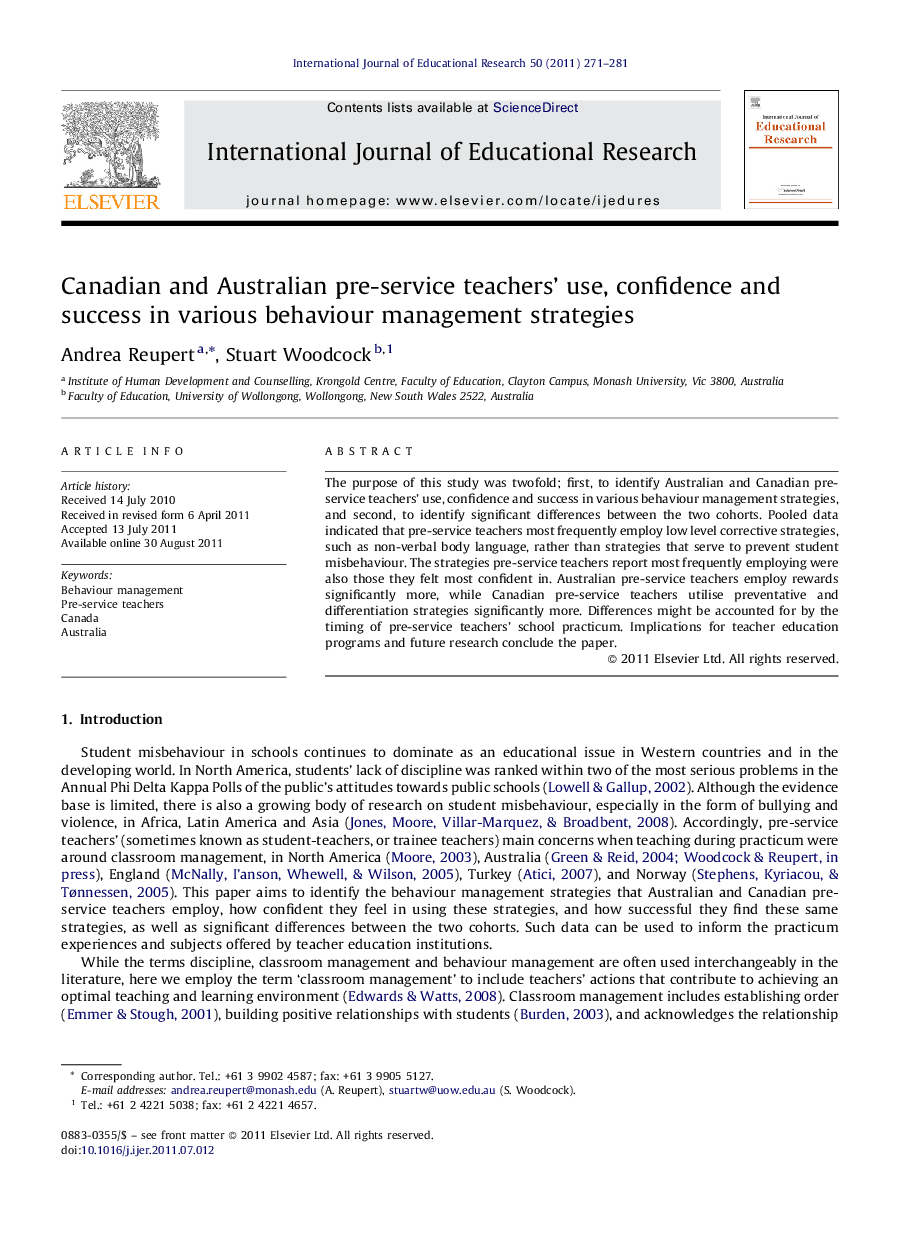| Article ID | Journal | Published Year | Pages | File Type |
|---|---|---|---|---|
| 357067 | International Journal of Educational Research | 2011 | 11 Pages |
The purpose of this study was twofold; first, to identify Australian and Canadian pre-service teachers’ use, confidence and success in various behaviour management strategies, and second, to identify significant differences between the two cohorts. Pooled data indicated that pre-service teachers most frequently employ low level corrective strategies, such as non-verbal body language, rather than strategies that serve to prevent student misbehaviour. The strategies pre-service teachers report most frequently employing were also those they felt most confident in. Australian pre-service teachers employ rewards significantly more, while Canadian pre-service teachers utilise preventative and differentiation strategies significantly more. Differences might be accounted for by the timing of pre-service teachers’ school practicum. Implications for teacher education programs and future research conclude the paper.
► Initial correction strategies were employed more than prevention. ► Preventative strategies were more successful than initial corrective strategies. ► Australians use and succeed in rewards more than Canadians. ► Canadians employ more preventative and differentiation strategies than Australians. ► Authentic learning opportunities in preventative approaches are indicated.
